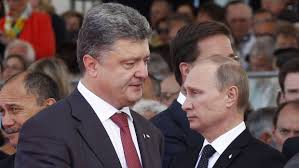By Uchenna Ekwo
Media and democratization are clearly inseparable bedfellows. Hyden and Okigbo (2003) describe the relationship between the two as “complex at worst and interwoven at best”. Ocitti (1999) aptly describes the relationship as “mutual political bedfellows or implacable arch-foes”. It is therefore safe to say that media and democracy are close cousins that can relate or deflate at different times. Nowhere is this mutual relationship evident than in the struggle for the decolonization of Africa in the first half of the 20th century to the consolidation of democracy today.
Africa’s democratic experience mirrors the waves of democracy in the world popularized by Samuel Phillips Huntington — the late influential Harvard political scientist. Huntington’s analysis show three phases of democratization processes in the world beginning from the First World War to the Second World War and then to the collapse of communism. In all these periods, there were moments of low and high momentum.
About the middle of the 20th century, nationalist leaders in Africa sought political independence from colonial administrations with the aim of installing democracy. The decolonization process represented the first wave of democracy in Africa. Democracy experienced a setback as most countries experienced a reversal of democracy and enthronement of military dictatorships. A second wave of democratization started in the 1990’s with sweeping democratic reforms and structural economic adjustments in Africa prominent among which were the introduction of multiparty democracies, end of apartheid, and deregulated media system. This period coincided with the wave of democracy in other parts of the world notably the collapse of communism in the Soviet Union.
Africa’s third wave of democracy is underway with the struggle for the political and economic integration of the continent as well as developing the capacity to cope with globalization.
In all these political transitions, the news media remained an active participant in shaping the contours of the continent’s march towards the consolidation of democracy. During the first wave of democracy in Africa, the media were the mouthpieces of nationalism. The print media became pivotal in the struggle for self rule with emergence of language press to challenge the narratives in the broadcast media completely owned and controlled by colonial governments which opposed democratization.

Center for Media & Peace Initiatives Inc,
Osama Abdelkhalek, Deputy Permanent Representative, Mission of the Arab Republic of Egypt to the United Nations, and Jennifer Dunham,
Senior Research Analyst, Freedom of the Press, Freedom House, New York
In Kenya, Jomo Kenyatta set up the Muigwithania or The Reconciler which served as the mouthpiece of Kikuyu Central Association. Kenyatta’s fellow nationalist Achieng Aneko was one of the first editors of Ramogi – a Luo language crusader for nationalist causes. In neighboring Uganda, a vibrant press had emerged in Luganda. Newspapers such Munno, Taifa Empya, and Kizito had impressive circulations of 10,000 copies (Hyden, Leslie, & Ogundium, 2003). In Tanzania, Mfanyakazi (The Worker) was established to become the mouthpiece of the powerful trade union movement that supported the nationalist cause. The Bulawayo Chronicle in Zimbabwe, The Post in Zambia, and The Guardian in Nigeria contributed to democratization by being outspoken and helping to set national agenda.

Several nationalist leaders served as editorial staff of these media outfits.
In his book: The History of Nigerian Press, Fred Omu shows how the press newspapers served as the vanguard of opposition to the imposition of alien rule and helped provide the intellectual leadership for the nationalist struggle.
“It is therefore ironic that some African nationalists, who used the media to seek social change, oust colonial regimes, and demand self determination are today opposed to allowing the media to scrutinize their governments, encourage transparency, and end secrecy”.
It is therefore ironic that some African nationalists, who used the media to seek social change, oust colonial regimes, and demand self determination are today opposed to allowing the media to scrutinize their governments, encourage transparency, and end secrecy. It is not a secret that the media in Africa are among the most suppressed in the whole world as some African governments, under the guise of constitutional rule, have resorted to the enactment of oppressive laws against an increasingly critical media. I will also want to point out that in the past 50 years so much of the debate about Africa’s political and economic problems are conducted by non-Africans. In fact, the African discussion has been colonized as surely as the African continent was a century ago. We need to do something about that.
The 2013 Press Freedom Index published by Reporters Without Borders shows that of all 179 countries surveyed, a majority of African countries led from behind. With the exception of Namibia, Cape Verde, and Ghana, the independent journalism group ranked other African countries at the bottom of the list. This is not an impressive record. Moving forward, leaders in government, media, business, and civil society must work towards energizing the media to support the public good.
In order to understand the role of the media in Africa’s democratization, it is important to assess the degree of state control on the media. We know that the state intimidates the media to the extent that most journalists engage in self-censorship and consequently limit their influence. An unfettered media system has ramifications for supporting good governance, citizen engagement in the political process, and stimulating international connections to spur global policy and perceptions. Africa has nothing to lose in supporting openness and everything to lose in sponsoring secrecy. In a recent article in Foreign Affairs, Africa’s Economic Boom: Why the Pessimists and the Optimists are both Right, two World Bank economists, Shantayanan Devarajan and Wolfgang Fengler predict that the success of recent reforms and increased openness in African societies would enable countries in the continent to grow more rapidly and reduce poverty level in coming decades.
This is the crux of this conference. It is our hope that conference participants, speakers, and discussants will seek to address the following questions and more: What kind of contribution have the media made to political and socioeconomic reforms since the 1960’s? How do the media influence the development of strong civil society and ideal political culture? What is the role of traditional and new media in contemporary public sphere? To what extent do the media represent interest groups or communities? What is the state of media freedom in Africa? What is the role of the media in democratization and political participation in the continent?
No doubt the past 50 years have been challenging for Africa in all fronts—political, economic, social, conflict management, among others. From its inception in May 1963, the Organization of African Unity (OAU) which metamorphosed into African Union in 1999 achieved its primary goal of eliminating colonial rule in the continent along with other “vestiges of colonization and apartheid”. The challenge for the African Union is to consolidate the democratic momentum in the continent. Our expectation is that the media will be a partner in the process: nursing, nurturing, and defending democratic values of freedom, transparency, participation, accountability, and pluralism.

- Alain POMBO, an activist from Democratic Republic of Congo makes a point
On behalf of CMPI, I welcome all of you to this conference. Our special gratitude goes to the African Union Mission to the UN and all speakers, discussants, volunteers, and participants for making this event possible.
Thank you for your attention.
Opening Statement by Dr. Uchenna Ekwo, President/Founder, Center for Media & Peace Initiatives at the Africa@50 Conference on May 28, 2013 at the African Union Mission to the United Nations in New York.





